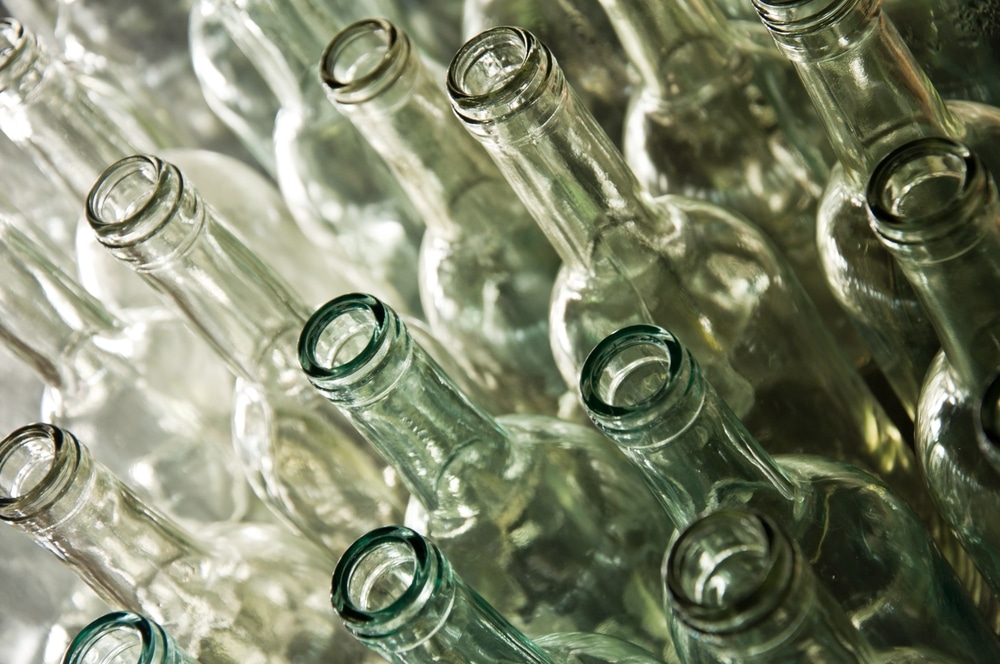There is also a deposit on glass bottles. This is an integral part of the German recycling system. But how exactly does the system work and what are the differences between reusable and disposable bottles? We explain.
Glass bottle deposit: What’s behind it?
The introduction of deposit systems for glass bottles has a long tradition in Germany and plays a crucial role in the recycling process. But what exactly is behind the term “deposit glass bottle” – and what should consumers look out for?
- Consumers often wonder which bottles are subject to a deposit. The deposit system for glass bottles was introduced to promote the recycling of material resources and reduce waste. It allows consumers to return empty bottles and receive a small amount of money in return.
- A distinction is made between reusable and disposable deposit bottles: Reusable glass bottles are cleaned and refilled, often up to 50 times. The deposit is usually 15 cents, for beer bottles it is usually 8 cents and for special bottles it may be more. Disposable glass bottles, on the other hand, are rare and the deposit is a standard 25 cents, regardless of the material.
- Glass bottles with a deposit are often recognizable by a special symbol or label. These labels are important because they indicate that the bottle is part of the deposit system and can be returned.
- Consumers can return their deposit glass bottles to almost any supermarket or beverage store. There, or directly at the checkout (for small quantities), special machines are available that scan the bottles and credit the corresponding deposit amount.
- Despite the advantages, there are also challenges in handling returnable glass bottles. For example, consumers must ensure that the bottles are not damaged or heavily soiled, as damaged bottles are often not accepted.
How to return deposit glass bottles
How does the return process for deposit glass bottles work? Many people are unsure where and how to return their empty bottles and exactly how the process works.
- Deposit glass bottles are usually returned via special reverse vending machines in supermarkets. These machines recognize the deposit symbol and read the barcode on the bottle to correctly assign the deposit amount.
- After inserting the bottles into the machine, the deposit value is printed on a receipt, which consumers can exchange for cash directly at the checkout or have credited to their purchase. Alternatively, small quantities (usually up to three bottles) can be returned at the checkout.
- Not all types of bottles are subject to a deposit. Reusable glass bottles are almost always subject to a deposit, while disposable bottles – usually made of PET or metal – have a 25-cent deposit. However, disposable glass bottles with a deposit are rare in Germany, as glass is almost exclusively reused. Therefore, please pay attention to the respective labeling.
- It is advisable to rinse the bottles before returning them to avoid hygiene problems. Although this is not mandatory, it is recommended to make the return process smoother.
Environmental aspects of returnable glass bottles
What impact do returnable glass bottles have on the environment? The ecological footprint of glass bottles is an important issue, particularly in terms of energy consumption and resource conservation.
- Glass is a 100% recyclable material, which means that old glass bottles can be used to make new ones without any loss of quality. This significantly reduces the need for new raw materials.
- Recycling glass saves energy, as the production of new glass bottles from old glass requires significantly less energy than production from raw materials. This leads to a reduction in CO2 emissions.
- Despite these advantages, glass is heavier than plastic, which means that transport requires more energy and therefore causes higher emissions. A balanced system between glass and other materials can help here.
- The use of reusable bottles further reduces the ecological footprint, as these bottles can be used several times before being recycled. This significantly extends the life cycle of the material.

